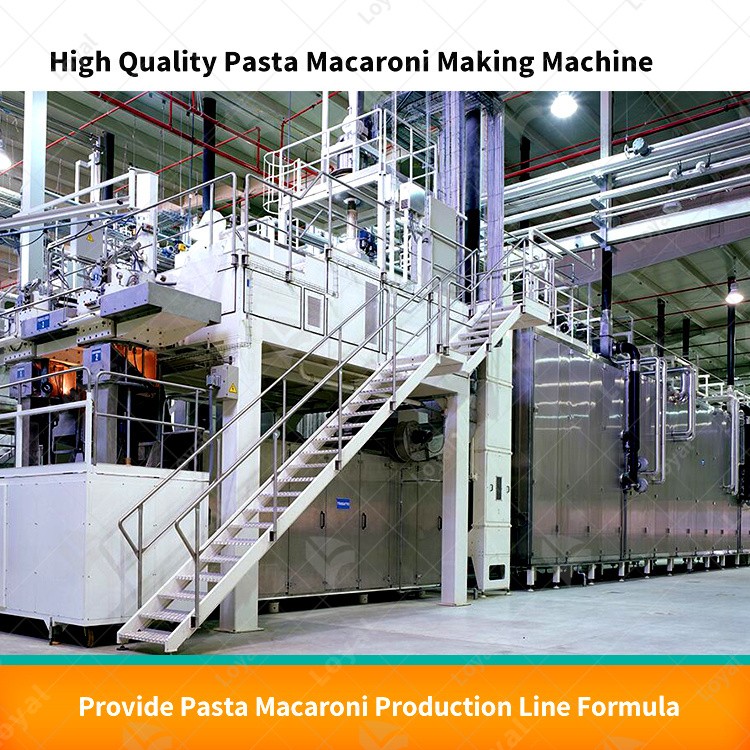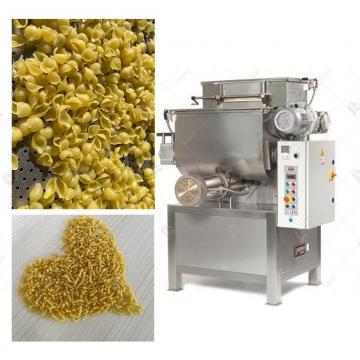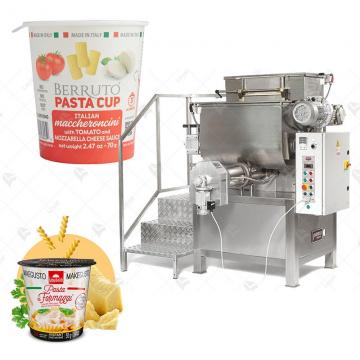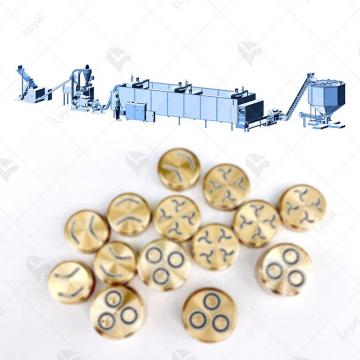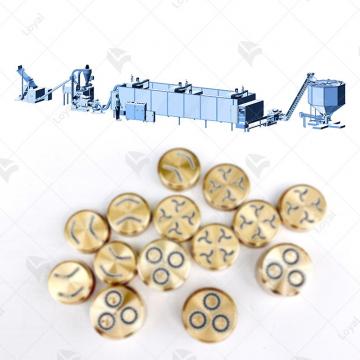Streamlining Production: A Comprehensive Guide to Fully Automatic, Energy-Efficient Pasta Processing Equipment
Streamlining Production: A Comprehensive Guide to Fully Automatic, Energy-Efficient Pasta Processing Equipment
Introduction
Shandong Loyal Industrial Co., Ltd. has incorporated advanced technologies from Gidamak and ITALGI S.r.l. in the production of its macaroni.Welcome to our comprehensive guide to fully automatic, energy-efficient pasta processing equipment, Macaroni Pasta Production Line where we explore the cutting-edge technologies changing the pasta manufacturing landscape. In today's fast-paced world, the industry's focus on streamlining production processes has never been more important.
Significance of Streamlining Production
The pasta industry recognizes the critical role of streamlining production. This section introduces the concepts of fully automatic and energy-efficient pasta processing equipment, highlighting their significance in enhancing productivity and sustainability. As we delve into the guide, you'll discover how these technologies shape the future of pasta manufacturing.

Evolution of Pasta Processing Technology
To understand the present, we must explore the past. The evolution of pasta processing technology provides a historical context for the current state of fully automatic systems. From traditional methods to today's innovations, this section will showcase the pivotal milestones and advancements leading to energy-efficient automation.
Technological Advancements
Innovation is at the heart of the pasta industry. This part of the guide will highlight significant technological advancements, showcasing the industry's commitment to staying ahead. The chronological overview will illustrate how these advancements contribute to the evolution of fully automatic, energy-efficient systems.
Fully Automatic Solutions: A Deep Dive
Now, let's dive into the core theme of fully automatic solutions. Explore the mechanics and benefits of automated pasta processing equipment, and understand how automation optimizes production, reduces manual intervention, and contributes to energy efficiency.
Precision and Efficiency
Emphasizing the precision and efficiency achieved through fully automatic pasta processing equipment becomes pivotal. Technologies like robotics, artificial intelligence, and machine learning take center stage, elevating both the quality and speed of pasta production.
Energy-Efficient Practices in Automated Manufacturing
This section explores specific energy-efficient practices integrated into fully automatic pasta processing. Discover sustainable strategies, eco-friendly machinery, and the industry's commitment to minimizing energy consumption. These practices align with the growing demand for both efficiency and environmental responsibility.
Sustainable Manufacturing
Learn about the showcase of sustainable manufacturing practices, including eco-friendly packaging and waste reduction. The pasta industry's dedication to responsible production aligns with the growing demand for environmentally conscious manufacturing.
Case Studies: Success Stories in Fully Automatic, Energy-Efficient Pasta Processing
Real-world case studies take center stage, featuring successful implementations of fully automatic processes. Gain insights into how renowned brands like Barilla, Banza, Jovial, "La Molisana," and Colavita have achieved streamlined production, energy efficiency, and notable results.

Comparative Analysis
Conduct a comparative analysis of these case studies to understand the varied approaches and technologies adopted by different manufacturers. This emphasizes the versatility and effectiveness of fully automatic, energy-efficient solutions in pasta processing.
Overcoming Challenges and Future Outlook
Address potential challenges associated with fully automatic processes and discover strategies for overcoming them. Explore the future outlook of the industry, including emerging trends and technologies poised to further advance pasta processing.
Continuous Improvement
Highlighting the importance of continuous improvement strategies underscores the dynamic nature of the industry. This includes staying abreast of advancements, embracing innovations, and proactively adapting to evolving consumer demands.
Conclusion
In conclusion, this guide has explored how fully automatic, energy-efficient pasta processing equipment is streamlining production in the industry. It emphasizes the need for continued innovation and collaboration to ensure a sustainable and prosperous future for pasta manufacturers.
Common Questions about Fully Automatic, Energy-Efficient Pasta Processing
Welcome to the Frequently Asked Questions (FAQs) section, where we address common inquiries about fully automatic, energy-efficient pasta processing. This comprehensive resource aims to provide clarity on key aspects discussed in the guide, offering valuable insights for individuals seeking more information on the future of pasta manufacturing.
Q1: What is fully automatic pasta processing equipment?
A1: Fully automatic pasta processing equipment refers to advanced machinery and systems designed to streamline the production of pasta. These systems incorporate cutting-edge technologies like robotics, artificial intelligence, and machine learning to automate various stages of pasta manufacturing, enhancing efficiency and reducing manual intervention.

Q2: How does fully automatic equipment contribute to energy efficiency?
A2: Fully automatic equipment contributes to energy efficiency by optimizing production processes. Through precise control mechanisms and advanced technologies, such as energy-efficient motors and sensors, these systems minimize energy consumption while maintaining high levels of productivity. The reduction in manual handling also leads to energy savings.
Q3: What are the benefits of adopting fully automatic, energy-efficient solutions?
A3: The benefits are multifaceted. Adopting fully automatic, energy-efficient solutions improves overall production efficiency, ensures consistent product quality, and significantly reduces energy consumption. Manufacturers experience increased productivity, lower operational costs, and contribute to environmental sustainability through responsible energy use.
Q6: What are the challenges in implementing fully automatic systems, and how can they be addressed?
A6: Challenges may include initial costs and workforce adaptation. However, industry-wide efforts focus on providing training programs and financial support, ensuring a smooth transition to fully automated processes.
Q7: How do emerging technologies shape the future of pasta processing?
A7: Emerging technologies like advanced robotics and machine learning are expected to further enhance precision, efficiency, and sustainability in pasta manufacturing. The future holds exciting possibilities for continued innovation.

